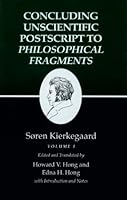# Kierkegaard's Writings, XII, Volume I

## Metadata
- Author: [[Søren Kierkegaard]]
- Full Title: Kierkegaard's Writings, XII, Volume I
- Category: #books
## Highlights
- This contradiction is the absurd, which can only be believed. If a historical certainty is obtained, one obtains merely the certainty that what is certain is not what is the point in question.
- God has nothing remarkable, nothing at all remarkable, about him-indeed, he is so far from being remarkable that he is invisible, and thus one does not suspect that he is there [er til], although his invisibility is in turn his omnipresence.
- Socrates was a teacher of the ethical, but he was aware that there is no direct relation between the teacher and the learner, because inwardness is truth, and inwardness in the two is precisely the path away from each other.
- If there is to be a distinction at all between thinking and acting, this can be maintained only by assigning possibility, disinterestedness, and objectivity to thinking, and action to subjectivity
- Actual time separates the good and the reward for him so much, so eternally, that sagacity cannot join them again, and the eudaemonist declines with thanks. To will the good is indeed the most sagacious thingyet not as understood by sagacity but as understood by the good. The transition is clear enough as a break, indeed, as a suffering.
- Instead of presenting the good in the form of actuality, as is ordinarily done, that this person and that person have actually lived and have actually done this, and thus transforming the reader into an observer, an admirer, an appraiser, it should be presented in the form of possibility
- Esthetically, the sacred resting place of the upbuilding is outside the individual; he seeks that place. In the ethical-religious sphere, the individual himself is the place, if the individual has annihilated himself